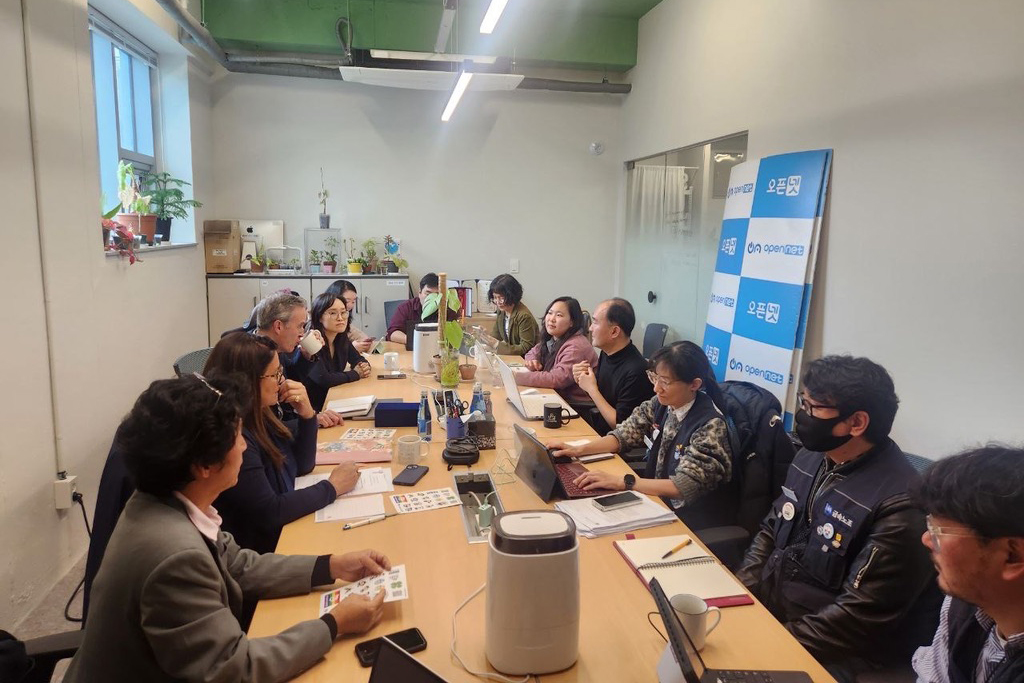
Digital technologies shape nearly every aspect of public and private life, from how we speak, organize, and demand accountability to how we are watched, judged, or silenced. Freedom of expression is now inseparable from digital technology. So it is essential that human rights norms evolve alongside technical innovation and that those norms are accessible, enforceable, and focused on the public interest.
The International Justice Clinic at the University of California, Irvine School of Law (IJC) works to ensure this critical balance. IJC knows that as power increasingly shifts into the hands of private companies, human rights must be prioritized in national laws, regional courts, international institutions, and the corporate policies of global tech companies.
“Wherever freedom of expression intersects with technology, that is where we work,” said Hinako Sugiyama, IJC’s senior counsel and digital rights fellow. “We focus on spyware and other intrusive types of digital surveillance, as well as bringing more transparency to social media.” As part of its efforts, the IJC builds coalitions with civil society organizations, activists, scholars, and experts to collectively document and analyze these digital rights violations using international human rights law. These coalitions then advocate for accountability and develop strategies to constrain digital surveillance and promote transparency in social media.
Learn more about Public Interest Innovators
In an era of rapid change, IJC’s work is critical. State surveillance, algorithmic censorship, data harvesting, spyware, and other technologies are immediate threats with harmful impacts around the world. In contexts where domestic legal protections are weak, courts are politicized, or tech companies operate without transparency or accountability, governments can use this technology to suppress civil society, intimidate journalists and human rights defenders, and erode people’s rights. The IJC works to counter these threats by driving systemic change. Rather than relying on public pressure alone, they use international human rights law as a concrete tool to embed digital rights into national laws, international courts, and corporate policies. This approach empowers local partners to advocate for lasting reforms and hold powerful actors accountable, ultimately ensuring that digital rights are protected from the local to the global level, in an effort to secure human dignity in an increasingly digital world.
IJC’s work involves constant collaboration with partners around the world to determine which tech to address and consult on the most appropriate solutions and relief. Recently, IJC has supported digital rights lawyers in South Africa working on surveillance law reform and researchers in Hungary examining political ads on social media. In Kazakhstan, IJC has supported journalists who are resisting the weaponization of internet shutdowns. In May 2025, the IJC submitted a report to the United Nations detailing how the Kazakh government’s use of these tactics suppresses internet access and freedom of speech, and also challenged the government’s justification for these shutdowns, providing recommendations on how they can meet their international obligations.
“For most of the people we work with, human rights work is local work,” said David Kaye, IJC’s clinic director. “Sometimes a collaborator says, ‘Look, we need to do this first at our national level, or even our local level, and it would be helpful for us to understand what the global norms are so that we can convey those to legislators in our national assembly.’”
Sugiyama recalled a powerful conversation with a journalist from Ethiopia at a coalition building meeting with IJC. “International human rights law is the only tool that we have on the ground. Domestic law was never created to protect us,” they told Sugiyama. “This is the tool we have. We want to use it, and we are using it.”
